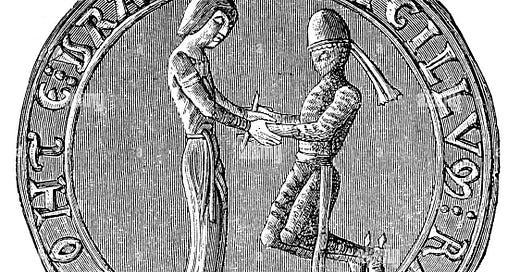Think about the phrase, “Make haste slowly.”
80% of what there is to say on that subject has been said in those three words. You could attach it to a fable that is three paragraphs long and you increase your communication to 85%. A 3,000-word substack would give you 90%. A 300-page book could discuss all sorts of edge cases and would get you to 95%.
I would read that book. Sounds fascinating. But the three-word phrase already has most of what you need to know.
This transmission will be very short. It’s the equivalent of a three-word phrase.
The Concept
Very wealthy people badly underinvest in their family and badly underinvest in long-term loyalty.
They don’t plan enough for the certainty of death or the uncertainty of the very unexpected.
1. Making good heirs is nothing so simple as getting them into good schools . This is the upper-middle class plan to success. It is also not as simple as throwing a pile of money at them. This is the lottery-winner plan for success. It is also not as simple as not giving them money so they have to make it on their own. This is not a plan for success at all. It is not as simple as making sure they have a bunch of connected peers. This is the cocaine and std plan for success. None of these are the plan for heirs. Heirship is so fundamental that an entire genre of literature, the mirror of princes, was purpose-made for it along with a whole range of methods and truths. All has vanished.
2. Long-term loyalty is extremely important in an uncertain world. It is the biggest possible hedge against risk. Most investments that are considered disruptive are disruptive only to some business or technology. Standard “disruptive investments” assume and even rely on the larger system not being disrupted. Wealthy people are hedging against lesser risks but ignoring the greater ones. How much is a diversified pile of money worth when the lights go out? Answer: a lot less than a broad net of skilled, dedicated people who trust in you and believe in your mission. Essentially, investments in loyalty are hedges against a world of catastrophes, system-level discontinuities, and black swans. Loyalty from skilled, capable people is the one form of capital that can reliably prepare for the unknown unknowns, or the out-of-context problem. Billionaires who underinvest in loyalty are extremely long the system going on without interruptions. They are short disaster.
Billionaires are not dumb, so there are a number who have poured good money into building bunkers somewhere as a hedge against One Second After or Russia going YOLO with its nukes. This is a gesture. A start. It is nothing like an actual hedge or an actual solution.
For one thing the risks are not just grid-crashing disasters. That is only one narrow subset of disaster, which in turn is only one kind of discontinuity. For example, some black swans are dramatic and unexpected good fortune. Think gold rushes. A small group of good people with capacity and brotherhood and a talented leader are much more poised to execute on this eucatastrophes than standard business organization would otherwise allow.
Even Taleb’s Black Swan investment strategy mainly involves broadly shorting Wall Street he is far more prepared than most of the very wealthy for negative shocks to the system, but his strategy assumes that the system still continues. What if its 1491, and our reality is meso-America?
Most entrepreneurs with national ambition have assimilated in one way or other that the founder should be something like a cult leader and the business should have a culture. Where they fail is artificially cabining these truths to their business. The successful founder is founding a family and a brotherhood.
Why do they underinvest?
First, because the way you invest in these doesn’t follow formal financial procedures. Loyalty investing and family investing is not just due diligence and check writing. Not at all. The way you invest in them is very different from the way you invest in a start-up or a fund. Our transmissions on creating family identity are primers on how to create loyalty even beyond the family level, for example—do they read like investment advice?
Billionaires don’t invest sufficiently in loyalty and family because they don’t know how and have no guarantees that they would be good at it if they did—they are afraid to fail.
Second, investing in loyalty or family is very, very expensive. They require money, but more expensively time and attention. They require commitment. They require personal growth and change. There are emotional payments to be made. These are all enormously pricy.
But no one has truly succeeded who hasn’t made these investments. Otherwise the wealthy man is just banking his money for hedonism, disaster, or the NGO class.
A man who staked half or more of his wealth either directly or through opportunity cost of time and attention but in return got a family and an extended network tied to the family with mission, cohesion, and identity has created a unicorn. Empires were built on less.
The Good News for You
The good news is that you have to be a billionaire to invest billions but anyone can invest time and attention. Family investment and loyalty investment and preparation against the unknown unknowns are within your reach. We would not say they are within the reach of the common man, because it takes an uncommon sort of person to have the vision to do it. But they are within your reach.
Credit where credit is due
This post was inspired by
. The specific techniques and projections are flawed, but it is a great essay because it gets the two big things right: have a multi-lifetime planning horizon and invest in loyalty. The first paragraph puts our timid, feckless mediocre billionaire class into stark perspective.






